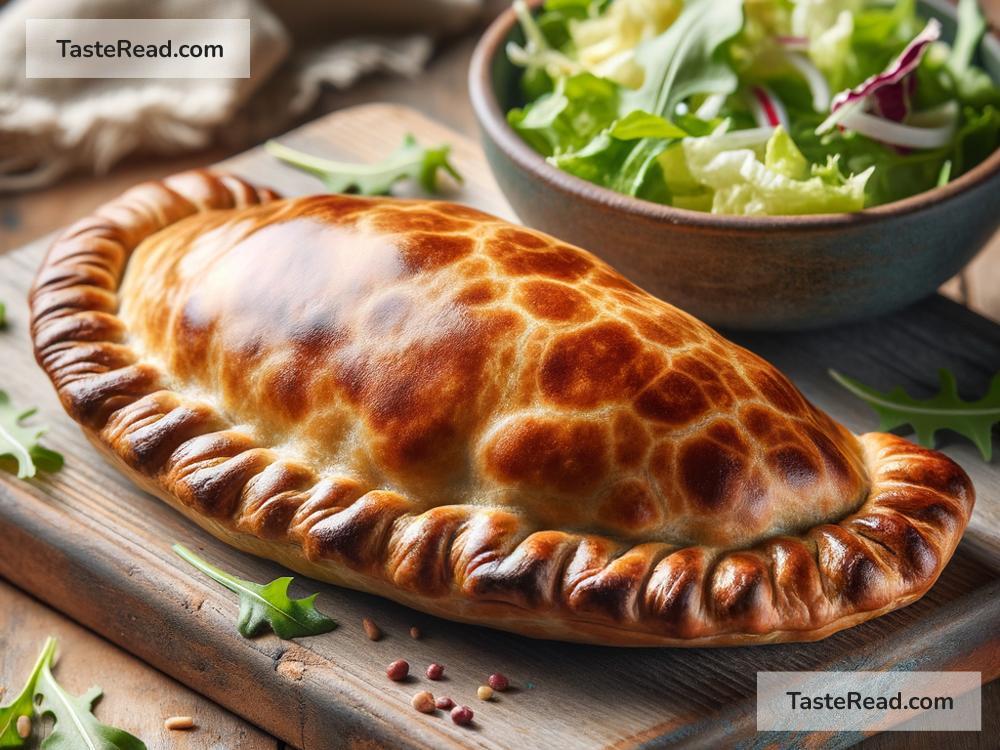How the British Cornish Pasty Became a Traditional Snack
Once upon a time, in the windswept lands of Cornwall in the southwest corner of England, a simple but utterly delicious culinary invention was born — the Cornish pasty. This traditional savory snack, resembling a golden crescent moon stuffed with a hearty mix of ingredients, encapsulates not just the flavors but the history and culture of its place of origin. The journey of how the Cornish pasty became a beloved British snack is a tale intertwined with miners, families, and the evolution of British cuisine.
The Origins of the Cornish Pasty
The Cornish pasty’s origins are humble, rooted deeply in the mining history of Cornwall. Miners needed a convenient and nutritious meal that could be eaten without utensils, would stay warm for hours, and could be carried easily. Enter the pasty: a complete meal encased in a thick, crimped pastry crust. The traditional filling comprised beef, potato, turnip (known as swede in Cornwall), and onion, seasoned simply with salt and pepper. But the most innovative feature was its design. The thick crust acted as a handle of sorts, which miners could hold with their dirty, arsenic-laden hands, eating the filled portion and discarding the crust.
The Evolution of the Cornish Pasty
The pasty wasn’t confined to the mines for long. As Cornish miners traveled the world, they took their culinary treasure with them, introducing it to new lands and peoples. Back in Cornwall, the pasty evolved from a miners’ meal to a staple of the Cornish diet, enjoyed by families, especially on weekends as a treat after church.
The filling varied depending on what was available, leading to a wide variety of pasties with different ingredients, though the original beef, potato, swede, and onion combination remained the gold standard. Butchers and bakeries began to sell pasties, making them widely accessible beyond the mining communities and embedding them further into Cornish culture.
The Pasty Goes National
As people moved around the UK for work, they spread their culinary preferences, and the Cornish pasty was no exception. It began to appear in other regions, adapted to local tastes and available ingredients. What was once a Cornish specialty became a British favorite, renowned for its simplicity, heartiness, and comfort.
Interest in regional British cuisine and traditional recipes grew, bringing the Cornish pasty into the spotlight once again. It wasn’t just a nostalgic favorite but a symbol of Cornish identity and heritage. Recognizing its significance and to safeguard its quality and authenticity, the Cornish pasty was granted Protected Geographical Indication (PGI) status by the European Union in 2011. This means that only pasties made in Cornwall according to the traditional recipe can be called “Cornish pasties.”
The Cornish Pasty Today
Today, the Cornish pasty is celebrated not just in Cornwall but across Britain and even internationally. Pasty shops dot the landscape, from tiny Cornish villages to London’s bustling streets, offering the classic filling alongside innovative new varieties catering to modern tastes, including vegetarian and vegan options. The pasty has adapted to the times while staying true to its roots.
Every year, Cornwall hosts the World Pasty Championships, attracting entries from around the globe and celebrating the pasty in all its forms. The event underscores the pasty’s enduring appeal and its role as a cultural ambassador for Cornwall.
What started as a practical solution to a miner’s lunch dilemma has become a culinary icon, representing the spirit of innovation, community, and tradition. The Cornish pasty stands as a testament to the enduring power of simple, good food to bring people together and to define and preserve our cultural identities.
So, the next time you bite into a warm, crumbly, savory Cornish pasty, remember, you’re not just enjoying a snack; you’re partaking in a piece of British heritage that’s been centuries in the making. Whether enjoyed in the rolling hills of Cornwall, amidst the hustle and bustle of London, or anywhere around the world, the Cornish pasty continues to be a traditional snack beloved by all.


